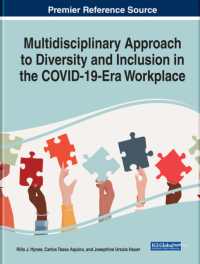- ホーム
- > 洋書
- > 英文書
- > Nature / Ecology
Full Description
As the population of the greater Las Vegas area grows and the climate warms, the threat of a water shortage looms over southern Nevada. But as Christian S. Harrison demonstrates in All the Water the Law Allows, the threat of shortage arises not from the local environment but from the American legal system, specifically the Law of the River that governs water allocation from the Colorado River. In this political and legal history of the Las Vegas water supply, Harrison focuses on the creation and actions of the Southern Nevada Water Authority (SNWA) to tell a story with profound implications and important lessons for water politics and natural resource policy in the twenty-first century.
In the state with the smallest allocation of the Colorado's water supply, Las Vegas faces the twin challenges of aridity and federal law to obtain water for its ever-expanding population. All the Water the Law Allows describes how the impending threat of shortage in the 1980s compelled the five metropolitan water agencies of greater Las Vegas to unify into a single entity. Harrison relates the circumstances of the SNWA's evolution and reveals how the unification of local, county, and state interests allowed the compact to address regional water policy with greater force and focus than any of its peers in the Colorado River Basin. Most notably, the SNWA has mapped conservation plans that have drastically reduced local water consumption; and, in the interstate realm, it has been at the center of groundbreaking, water-sharing agreements.
Yet these achievements do not challenge the fundamental primacy of the Law of the River. If current trends continue and the Basin States are compelled to reassess the river's distribution, the SNWA will be a force and a model for the Basin as a whole.







